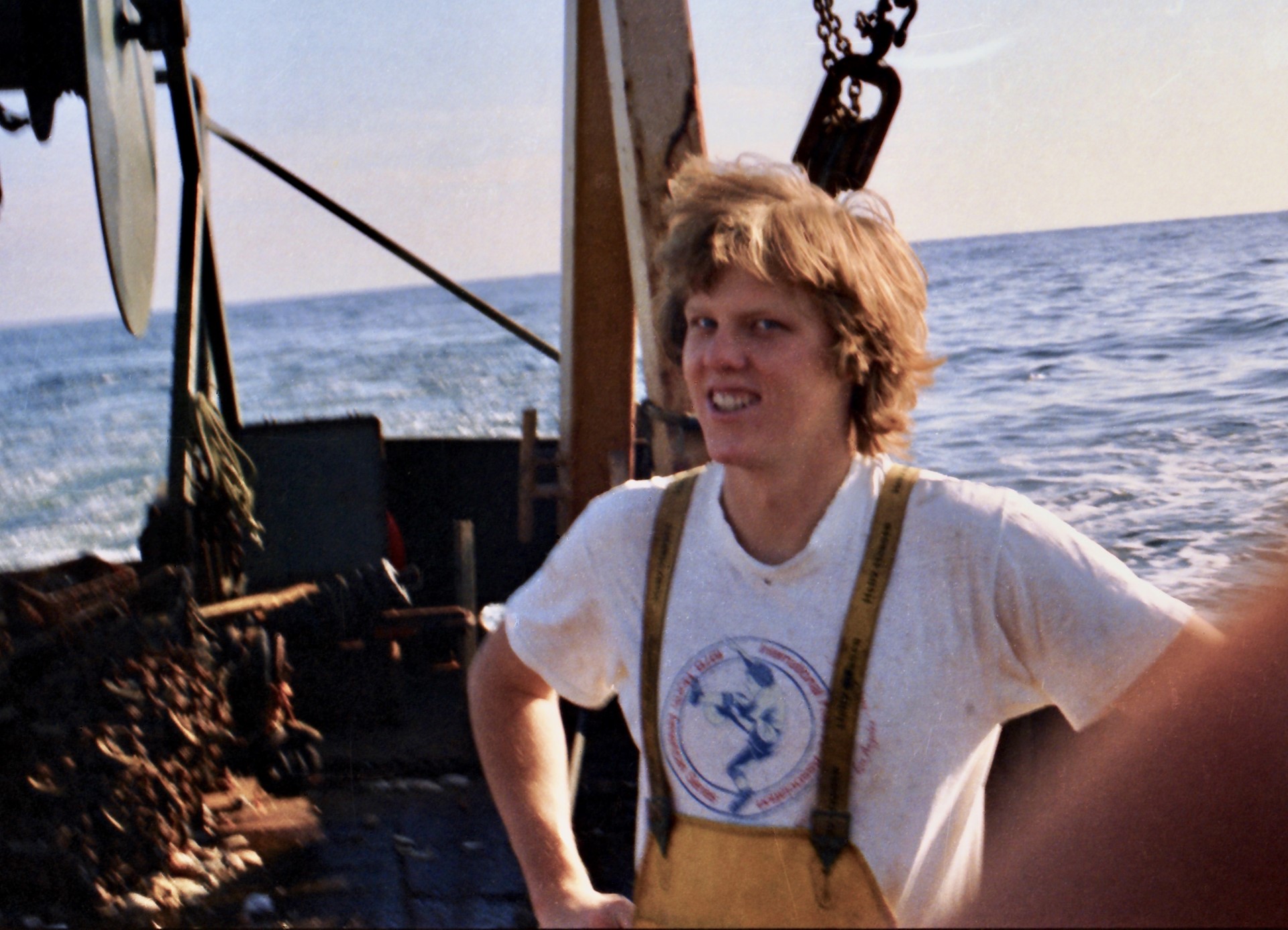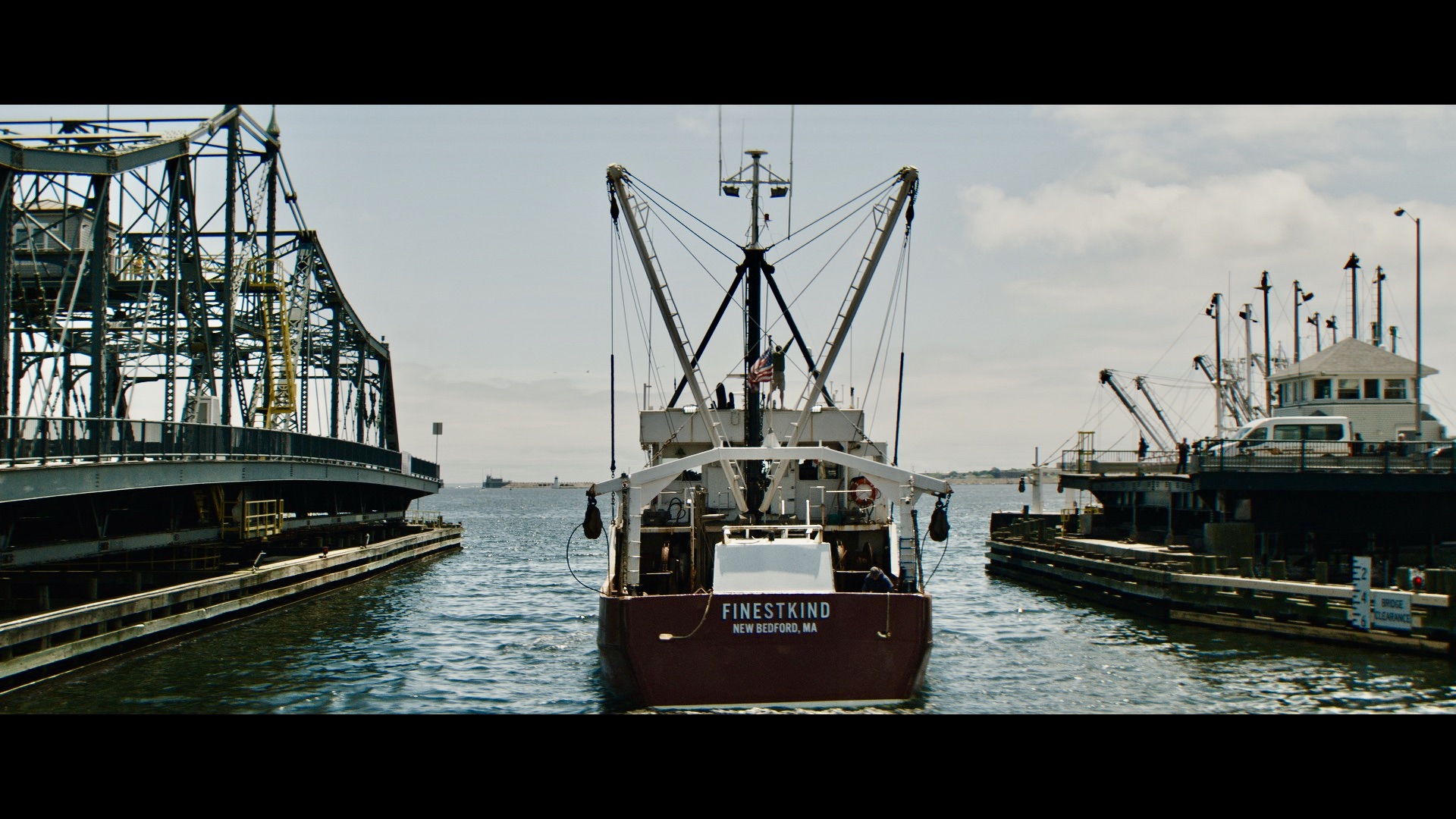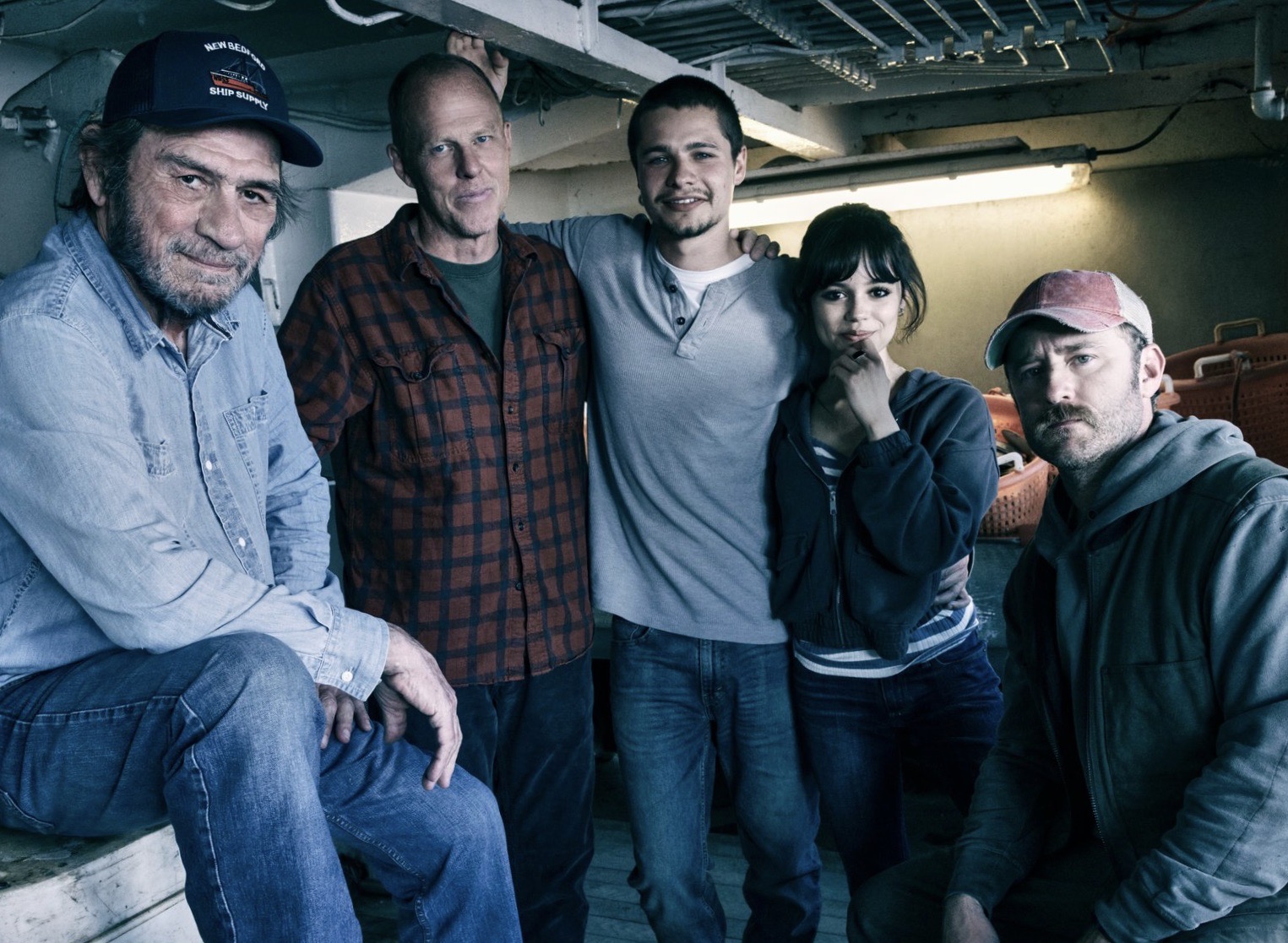
Commercial fishing and my career in Hollywood are forever joined. I grew up in the seaport of New Bedford, Mass. It is also the primary location in my current film Finestkind. Oscar Helgeland, my Norwegian-born grandfather, moved there after the Stock Market Crash in 1929 put an abrupt end to his career as the captain of a wealthy Manhattanite’s Hudson River-based yacht. The story of him not understanding what a local mobster meant by “boat insurance” (and the subsequent explanation) was an early, oft-told tale among many I heard growing up. I particularly loved the stories of storms at sea and brawls in fishermen bars. The legend of Oscar’s brother Martin resting the knee of his broken leg on the seat of a chair to fight an ex-Marine known simply as “Iwo-Jima” was my favorite.
My earliest childhood memory is dropping my father Thomas off at the docks where he would literally walk a plank to the deck of a scalloper called The Pearl Harbor. I then wouldn’t see him again for at least a week. And until a disintegrating disc in his back left him permanently ashore, ours was a fishing household. We had fishcakes for breakfast, used scallop shells for ashtrays, and had a closely watched barometer on the wall in the hallway. The movie business might as well have been conducted a galaxy away, though my earliest movie memory was at the drive-in marveling at Goldfinger from the backseat of my parents’ Mercury Comet. I was so clueless as to where movies came from that even in my teenage years going to Rocky, Breaking Away, and The Warriors, I had little sense that people (aside from actors) worked to make them.
Read more: The 10 Best Movies of 2023

After graduating from college in 1983 with an English degree (like Charlie in my film), I had no clue what I wanted to do with my life. But I knew I had to go fishing. Helgelands had been making their living at sea for hundreds of years, and who was I to break that streak? Also, I wanted to do what my father once had done. I wanted to know the person he had once been, long ago. So I went down to the docks with a seabag and got a site on my first boat, the fishing vessel Mondego II. I was a commercial fisherman for nearly two years until a chance encounter in a bookstore. Looking for a paperback to take on the next fishing trip, I glanced down as I passed through the reference section and saw it: A Guide To Film School. Cue the music, because the sky opened, heavenly light shone, and within moments, I was stunned to learn that people had jobs making movies and that you could go to school to learn how. In my working life, becoming a screenwriter immediately followed being a commercial fisherman. Film school was the direct bridge between them, but I went from one job to the other. If there is someone else in Hollywood whose resume looks like mine, I have yet to meet them.
I wrote the first draft of Finestkind over 30 years ago. The first incarnation had Heath Ledger attached and that was to mark the start of a long odyssey to get it made. Other actors came and went, funding was raised and fell through, until a perfect storm of circumstances arrived. When we started shooting in 2022, I hadn’t been on a boat since 1985, but it all came back to me. I didn’t need a technical adviser; I was the technical adviser. All of the crew members are based on people I once fished with. The character of Eldridge, as played by Tommy Lee Jones, is dying from stomach cancer. Upon his diagnosis, he says the same line about an antacid that my Uncle Chris said upon learning of his same diagnosis in real life. Another Eldridge line in the coffee shop near the end of the movie is verbatim the last words my father ever spoke to me.
The character of Charlie (Toby Wallace) is a loose sketch of me as a footloose young man just out of college about to embark on the adventure of his life. And the character of Mabel (Jenna Ortega) is also partly me. The street her mother lives on in the film is a block from the street I grew up on. Like I was back then, she is looking for a bigger world for herself. She can sense it’s out there even if she’s not sure how to find it. Did I ever have drug dealers from Boston breathing down my neck looking for their stolen heroin? Well, no, but I did know fishermen whose lives were unraveled by that drug. Crime supplies the inevitable crucible that my movie characters find themselves drawn to as their situation goes from bad to worse. It is the accelerant that brings the drama to a boil and speeds it to its end.

The inside joke is that years ago when I first started writing, I wrote what I knew—a story set in the world of commercial fishing. Little did I think it would be the 60-year-old me that would direct the script the 28-year-old me had written. Again, the bridge between my fishing career and my movie career was short and direct. I needed a book to read on the boat, and the book I found took me off that boat to an unimaginable life writing “fade in” and “fade out” and shouting “action” and “cut.”
In my hometown, there is a bridge across the harbor called the New Bedford Fairhaven Bridge. It’s a swivel bridge that pivots in the center to allow marine traffic to pass from the inner harbor to the outer—outward or homeward bound depending on your direction. As a boy, I used to ride my bicycle over this bridge. A decade later, I was a deckhand on fishing boats headed through its particular passage: outward bound in more ways than one. Little could I imagine that three decades later, I’d be a film director making a film in my hometown and that the final day of production would take place on this bridge. It was also the final scene in the film.
The Finestkind, the movie’s titular fishing boat, is passing from the inner harbor to the outer and beyond. The New Bedford Fairhaven Bridge has been shut down to traffic for the day for my crew to shoot on. I “own it,” to use a film location term. I own this bridge. Little Brian on his bike could not have imagined he’d one day have the run of it from the bridge keeper’s booth high above to the mechanism which turns it below. Brian the 23-year-old deckhand, headed out to sea for 10 days, doesn’t have a whisper of a notion he’ll someday be shooting a scene here, directing Tommy Lee Jones and Jenna Ortega—who won’t even be born for another 20-odd years. This bridge is a movie location, a memory, and a metaphor all at once. And to finish the day, I’ll be jumping down to a commercial fishing boat passing through to direct Toby about to embark on another adventure and Ben Foster finally doing right by his father. They are Outward Bound, but I am Homeward Bound in a way I could never have imagined, on my own adventure and doing right by my own father as well.
More Must-Reads From TIME
- The 100 Most Influential People of 2024
- Coco Gauff Is Playing for Herself Now
- Scenes From Pro-Palestinian Encampments Across U.S. Universities
- 6 Compliments That Land Every Time
- If You're Dating Right Now , You're Brave: Column
- The AI That Could Heal a Divided Internet
- Fallout Is a Brilliant Model for the Future of Video Game Adaptations
- Want Weekly Recs on What to Watch, Read, and More? Sign Up for Worth Your Time
Contact us at letters@time.com